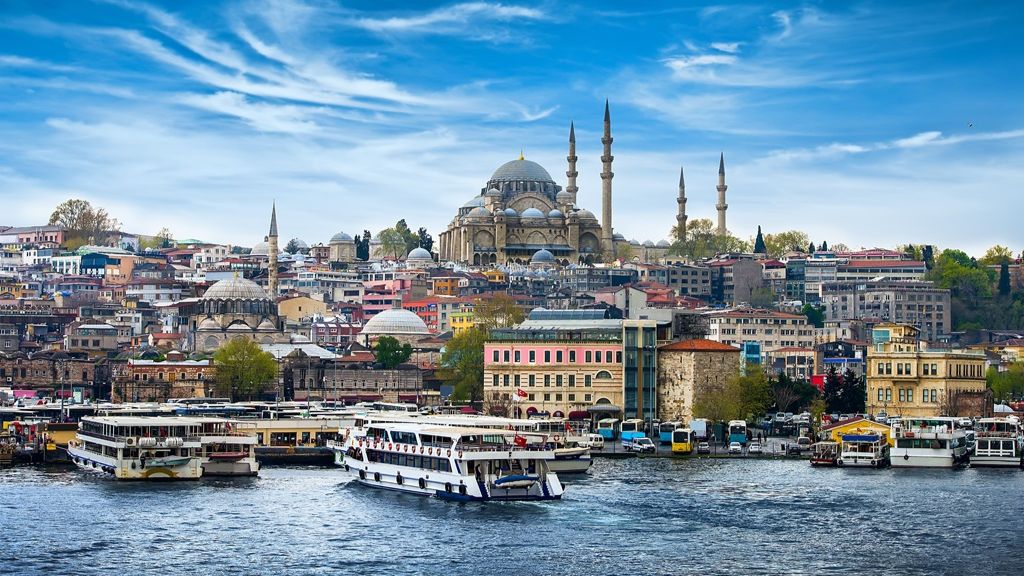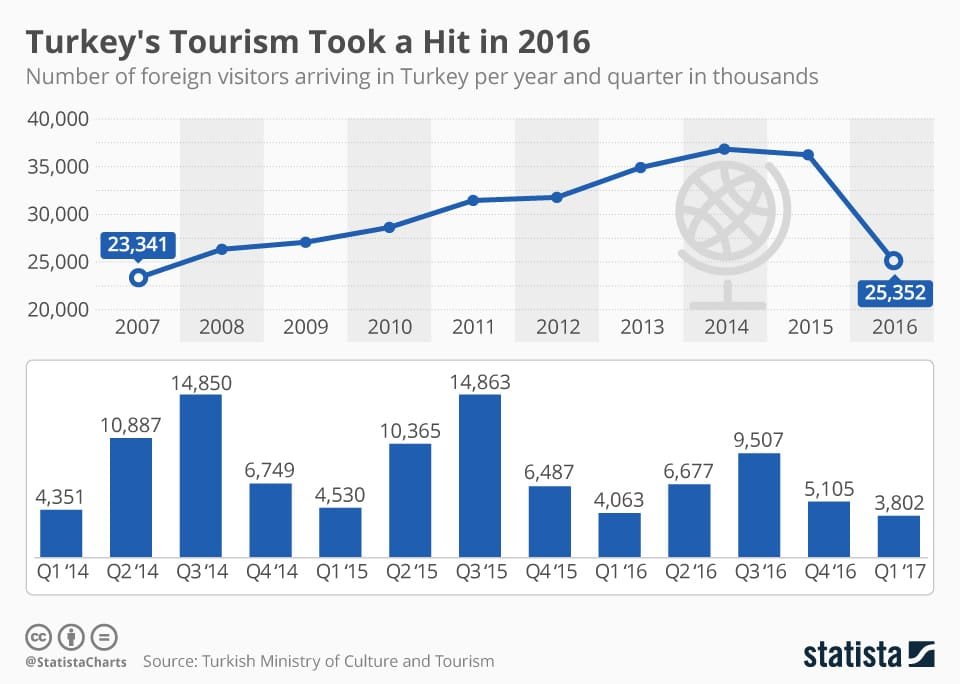Turkey tourism delivers an experience that goes beyond expectations. For every traveler, Turkey is not just a place to visit—it’s a place to feel, explore, and return to again. Turkey is more than just a destination—it’s an experience that combines history, culture, and breathtaking landscapes into one unforgettable journey.
From Istanbul’s iconic skyline to Cappadocia’s dreamy valleys and Antalya’s sun-soaked coastlines, every corner of the country offers something unique.
Straddling both Europe and Asia, Turkey offers a unique combination of breathtaking landscapes, ancient heritage, vibrant culture, and world-class hospitality. From bustling bazaars in Istanbul to the surreal landscapes of Cappadocia, Turkey tourism has something for every kind of traveler.
History and Heritage
With thousands of years of history, Turkey has been home to some of the world’s most influential civilizations, including the Hittites, Greeks, Romans, Byzantines, and Ottomans. Ancient sites such as Ephesus, the city of Troy, and Istanbul’s Hagia Sophia showcase Turkey’s rich and layered past. The country is home to 19 UNESCO World Heritage Sites, which reflect its immense cultural and historical significance.
Turkey is a transcontinental country strategically located between Europe and Asia, bordered by eight countries and surrounded by the Mediterranean, Aegean, and Black Seas. This unique location makes Turkey a cultural bridge between East and West. Its landscapes are just as diverse—from the sun-kissed beaches of Antalya to the surreal fairy chimneys of Cappadocia and the snow-capped peaks of Mount Ararat.
Best Time to Visit Turkey
The best times to visit Turkey are April, May, September, and October, when temperatures average between 68°F and 86°F. The mild climate during these months is perfect for exploring Turkey’s ancient ruins, cultural landmarks, and a wide range of outdoor activities.
By contrast, June through September brings much hotter weather, especially in the southern and western regions, where temperatures frequently rise into the mid-90s°F. While sightseeing might be challenging in the heat, these summer months are ideal for travelers who want to relax by the sea, swim, and experience Turkey’s world-famous beaches.
From October to March, the country experiences cooler conditions, which means fewer crowds at major attractions and a more relaxed travel experience. However, regions like Cappadocia and Eastern Turkey can drop to freezing levels during winter, making warm clothing essential for those planning to explore at this time.
Related: Which Is the Best eSIM for Turkey?
Top Tourist Destinations In Turkey
Turkey is filled with diverse attractions, from ancient ruins to stunning coastlines. These top tourist destinations showcase the country’s rich history, natural beauty, and unforgettable cultural experiences.
Istanbul

As Turkey’s cultural and historical heart, Istanbul is a must-visit. Here you’ll find iconic landmarks such as Hagia Sophia, once a church, later a mosque, and now a museum that reflects centuries of history. The Blue Mosque, Topkapi Palace, and the bustling Grand Bazaar add to the city’s charm. A Bosphorus cruise is the perfect way to admire Istanbul’s skyline, which beautifully blends minarets, modern towers, and Ottoman-era architecture.
Cappadocia
Known for its fairy-tale landscapes, Cappadocia is famous for its unique rock formations called fairy chimneys and ancient cave dwellings. The highlight for most visitors is a hot air balloon ride at sunrise, offering panoramic views of the valleys. Cappadocia also offers underground cities like Derinkuyu, which were used for shelter during ancient times.
Pamukkale
Pamukkale, or “Cotton Castle,” is one of Turkey’s natural wonders. Its terraces of white travertine pools filled with thermal waters look almost surreal. Visitors can bathe in the warm mineral-rich waters while enjoying the backdrop of stunning terraces. Nearby lies the ancient city of Hierapolis, adding history to the experience.
Antalya
Nicknamed the Turkish Riviera, Antalya is the place for beach lovers and luxury seekers. The turquoise Mediterranean waters, golden sands, and a backdrop of the Taurus Mountains make it one of the most scenic coastal cities. Beyond beaches, Antalya’s Old Town (Kaleiçi) offers charming cobblestone streets, Ottoman houses, and Roman ruins.
Ephesus
One of the best-preserved Roman cities in the world, Ephesus is a dream for history lovers. Once a thriving trade hub, the city is home to the Library of Celsus, an ancient amphitheater, and the ruins of the Temple of Artemis, one of the Seven Wonders of the Ancient World.
Mount Ararat & Eastern Turkey
For adventure seekers, Eastern Turkey is a treasure. Mount Ararat, believed by some to be the resting place of Noah’s Ark, is a popular trekking spot. The region also offers cultural diversity, traditional villages, and fewer crowds, making it perfect for travelers who want to go off the beaten path.
Natural Wonders and Adventure Tourism
Turkey is a paradise for outdoor lovers. The Aegean and Mediterranean coasts offer pristine beaches for swimming and sailing. Adventurers can hike the Lycian Way, a long-distance trail stretching along the southern coast, or climb Mount Ararat for breathtaking views. In Cappadocia, hot air ballooning is an unforgettable experience, while in winter, ski resorts like Uludağ and Palandöken attract snow enthusiasts.
READ: Sail Away on a Blue Cruise in Turkey
Why Turkey Is More Than Just a Tourist Destination
When people think of Turkey, they often picture hot air balloons rising over Cappadocia, the turquoise waters of Antalya, or the bustling bazaars of Istanbul. While these attractions make Turkey one of the world’s most popular destinations, the country is far more than a traveler’s playground. It is a land where history, culture, innovation, and everyday life come together in a way that leaves a lasting impression long after the trip ends.
A Living Museum of History
Turkey is often described as an open-air museum, where ancient civilizations left behind a tapestry of ruins, monuments, and traditions. From the Roman amphitheaters of Ephesus to the Byzantine mosaics of Hagia Sophia and the Ottoman grandeur of Topkapi Palace, Turkey’s history is woven into daily life.
Unlike some destinations where history feels locked away in museums, in Turkey, it is alive—walking through the streets of Istanbul or Konya, you encounter centuries layered in every corner.
A Blend of Cultures and Identities
Turkey’s identity is shaped by its location as a bridge between Europe and Asia. It is a melting pot of traditions, languages, and customs. This cultural fusion isn’t just for tourists to admire—it’s a lived reality for millions of people who call Turkey home.
Markets, music, festivals, and even cuisine reflect this unique blend, giving visitors an authentic experience of multicultural coexistence.
Everyday Hospitality and Lifestyle
Tourism might bring people to Turkey, but hospitality makes them stay. Turkish people are renowned for their warmth and generosity, often inviting strangers for tea or sharing local knowledge without expecting anything in return.
Experiencing everyday life—sipping Turkish coffee at a neighborhood café, shopping at a local market, or relaxing in a hammam—gives travelers a sense of belonging. These small but powerful moments reveal Turkey’s heart beyond its famous attractions.
A Country of Innovation and Growth
Beyond its historic charm, Turkey is also a modern and dynamic nation. Major cities like Istanbul, Ankara, and Izmir are hubs of business, technology, and education. Turkey has a growing role in global trade, cultural diplomacy, and tourism infrastructure, making it not just a destination but a country that plays an important role in shaping the future.
Natural Beauty Beyond The Icons
While Cappadocia’s balloons and Pamukkale’s terraces are world-famous, Turkey is full of lesser-known gems. Villages along the Black Sea coast offer lush landscapes, while Eastern Turkey provides rugged mountains and serene lakes. These untouched regions show that the country’s beauty goes beyond postcard images, offering opportunities for sustainable and authentic travel.
Turkey Tourism Statistics

Turkey’s tourism sector has become one of the strongest in the world, attracting millions of visitors each year. In 2024, the country welcomed around 62 million travelers, making it one of the top five most-visited destinations globally. Tourism revenue reached a record $61.1 billion, representing an 8.3% increase from the previous year. This growth highlights Turkey’s ability to bounce back stronger than ever, surpassing pre-pandemic numbers and cementing its status as a global tourism hub.
The majority of visitors came from Europe, the Middle East, and Russia, with Germany, the UK, and Russia ranking among the top tourist sources. Coastal regions such as Antalya and Bodrum saw record-breaking arrivals thanks to their reputation as luxury beach destinations, while Istanbul remained the cultural capital, drawing millions to its historic landmarks and vibrant lifestyle. Beyond leisure, Turkey is also growing in health tourism, attracting international visitors for medical treatments, wellness centers, and thermal spas.
With continued investment in infrastructure, marketing, and cultural preservation, Turkey aims to increase both visitor numbers and tourism revenue in the coming years, positioning itself not just as a summer hotspot but as a year-round destination for history, culture, nature, and wellness.
Read More: Unlock the Secrets to a Perfect Holiday Turkey
Turkish Cuisine And Culinary Tourism
Food is one of the highlights of Turkish tourism. Travelers can indulge in kebabs, mezes, baklava, Turkish delight, and pide (Turkish pizza). Street food such as simit (sesame bread rings), döner kebabs, and kumpir (stuffed baked potatoes) is popular and affordable. Turkish tea and strong, rich coffee are part of everyday life, often served with sweets. Culinary tours and local food markets offer visitors a taste of authentic Turkish flavors and traditions.
Local Experiences And Traditions
Experiencing Turkey means more than just sightseeing—it’s about immersing yourself in local traditions. Visit a traditional Turkish hammam (bathhouse) for relaxation, explore artisan shops where locals weave carpets and craft ceramics, and participate in lively festivals showcasing music, dance, and folk traditions. Turkish hospitality is legendary; locals are known for welcoming guests warmly, often offering tea as a gesture of friendship.
Practical Travel Information
- Best Time To Visit: Spring (April–May) and autumn (September–October) are ideal for sightseeing. Summer is perfect for beach holidays, while winter is best for skiing.
- Visa Requirements: Many travelers need an eVisa, which is quick and easy to apply for online.
- Transportation: Turkey has an excellent network of domestic flights, high-speed trains, buses, and ferries.
- Currency & Language: The local currency is the Turkish lira, and while Turkish is the official language, English is widely spoken in tourist areas.
- Safety Tips: Turkey is generally safe for tourists, but like anywhere, it’s wise to be aware of your surroundings and follow local advice.
Read Also: Tourist Destinations and Investment
Why Turkey Is A Must-Visit Destination?
What makes Turkey truly special is its diversity. In a single trip, you can explore ancient ruins, relax on Mediterranean beaches, shop in vibrant bazaars, and hike through surreal landscapes. Whether you’re a history buff, foodie, adventurer, or beach lover, Turkey offers something unique for everyone. Its growing tourism infrastructure ensures comfort and safety while retaining its authentic charm.
Conclusion
Turkey is more than just a travel destination—it’s an experience of history, culture, and natural beauty wrapped into one. From the architectural wonders of Istanbul to the dreamy skies of Cappadocia, every corner has something to offer. If you’re seeking a destination that combines heritage, adventure, and unforgettable experiences, Turkey should be at the very top of your travel bucket list.
Frequently Asked Questions (FAQs) about Turkey Tourism
Planning a trip to Turkey? Here are the most frequently asked questions about Turkey tourism, covering everything from the best time to visit and top attractions to visas, safety, food, and travel tips. These answers will help you make the most of your journey.
What Is The Best Time To Visit Turkey?
The ideal months are April, May, September, and October, when the weather is mild and perfect for sightseeing. Summer (June–September) is great for beach holidays, while winter (December–February) is best for skiing in destinations like Uludağ and Palandöken.
Do I Need A Visa To Visit Turkey?
Most travelers require a visa, but Turkey offers a convenient eVisa system that can be completed online in just a few minutes. Some countries also have visa-free agreements, so it’s best to check the requirements before booking your trip.
Is Turkey Safe For Tourists?
Yes, Turkey is generally safe for tourists. Popular destinations like Istanbul, Cappadocia, Antalya, and Pamukkale are well-visited and secure. As with any international trip, it’s recommended to stay alert, avoid remote areas at night, and follow local advice.
What Are The Top Attractions In Turkey?
Highlights include Istanbul’s Hagia Sophia and Grand Bazaar, Cappadocia’s hot air balloons, Pamukkale’s travertine terraces, Ephesus ruins, and the beaches of Antalya and Bodrum. Turkey is a mix of cultural landmarks, natural wonders, and vibrant cities.
What Is Traditional Turkish Food Like?
Turkish cuisine is rich and diverse, featuring dishes such as kebabs, mezes, baklava, börek, and Turkish delight. Street food like simit (sesame bread rings) and döner kebabs are popular. Turkish tea and coffee are an essential part of the local culture.
What Is The Currency In Turkey?
The official currency is the Turkish Lira (TRY). Credit and debit cards are widely accepted in cities and tourist areas, but it’s useful to carry cash for smaller towns, markets, and rural destinations.
Can I Travel Around Turkey Easily?
Yes, Turkey has excellent transportation options, including domestic flights, high-speed trains, intercity buses, and ferries. Public transport in major cities like Istanbul is efficient, and taxis and ride-sharing services are also available. Renting a car is a good option for exploring rural regions.
















[…] growing number of women are traveling to clinics in Istanbul, Turkey, for a controversial surgical procedure: height reduction. Reports indicate that at least ten […]
Comments are closed.